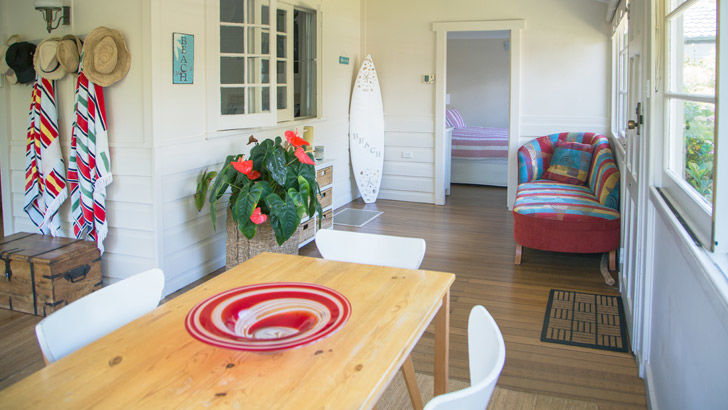What if you haven't paid off your mortgage when you retire
By Money Team
In August 2019, the Australian Housing and Urban Research Institute (AHURI) found that since the mid-1990s, the proportion of Aussies carrying a mortgage into retirement had more than doubled to 45%.
While more of us are holding a mortgage between the ages of 55 and 64 than in decades past, that's not the institute's biggest concern.
What's more worrying is the level of debt we're carrying into retirement.
The study found that for older Aussies, the mortgage debt-to-income ratio tripled between 1987 and 2015 - from 71% to 211%.
There are several contributing factors, but one of the main ones is that house prices tripled in this time and income only doubled. It meant average annual mortgage repayments went from $5000 to $17,000 and more than 25% of older mortgage holders were making loan repayments that exceeded 30% of their disposable income.
Easing some of this concern, the institute says that wealth held outside housing (think super and shares) has seemed to act as a reserve, allowing those at risk of loan default to continue making payments.
Ways to pay off the debt
James McFall, managing director and financial adviser at Yield Financial Planning in Victoria, says in his experience most retirees and pre-retirees would prefer not to have a mortgage.
"It's ideal that you don't have one ... so you have to plan around that preference," he says.
If you do find yourself in retirement with a mortgage, there are a few questions to ask yourself. The first is whether you're still in a position to pay it down. McFall says there are several scenarios where you might be in that position.
You may have accumulated a large amount of super and, combined with pension payments, there's likely to be a viable strategy to pay the mortgage down over time. Or an option might be to make a lump sum withdrawal from your super and pay off the debt.
McFall says there might also be assets in investment vehicles like trusts or in other property that is paying a good income and able to support your mortgage needs. This works especially if your preference is not to sell those assets.
If you want to retain the home loan in retirement, the most important thing you can do is have a plan, says McFall.
When developing your plan it's important to think about the "what ifs": for example, what if you're caught with your home reducing in value or if interest rates increase (albeit unlikely in the near future).
The AHURI study found that, in 1987, a 10% decline in house prices would have wiped out 11.5% of your equity in the home. By 2015, that percentage had lifted to 14%.
Thankfully, though, history also tells us that most older mortgage holders have remained in positive equity territory (they owe less on their dwelling than what it's worth).
When deciding to retire with a mortgage, McFall says you're making a choice to trade off the benefit of time by choosing not to work for a lower income and you should weigh up the impact on your lifestyle and budget.
"You need to balance out what's most important and understand there's compromise involved in everything. There are few people that can have everything, so recognise there's cause and effect with your choices," says McFall.
For his clients, McFall says having a mortgage in retirement will include any number of strategies including debt reduction, debt repayment (including from other sources) or downsizing.
Holiday or investment home

McFall says when it comes to holiday homes and retirement, there are several considerations and it's best to identify the property's purpose.
Generally a holiday home can be something that's been in the family for years and had its peak time as children were growing up, or it
can be a property people will buy specifically for retirement.
Brett Schatto, chief executive and financial adviser at Pride Advice, says if you have a holiday home (or an investment property), it's going to be assets tested to determine your eligibility for the age pension. Your principal place of residence isn't tested.
"It's an interesting discussion with people to say you could have a $5 million house and qualify for full Centrelink, but if you've got a $1 million house with a $1 million investment property, yeah, you've got $2 million in property assets, but you don't qualify for Centrelink. It's an interesting take on how your own home is not included but investment properties are," says Schatto.
He finds people who hold onto their holiday homes are increasingly doing so for their kids.
"It's the children who will want the parents to hold onto it because they can take the grandkids there. It's by no means a bad thing but it is a cost you need to weigh up in retirement."
McFall also acknowledges this, saying one of the first things you need to evaluate about your holiday or investment property is whether it still offers you value. Are you getting the same benefit you once did? And do you see it as an important part of your retirement?
Both advisers point out that holiday and investment homes can quickly give rise to maintenance issues. You need to assess whether you're prepared to pay the additional costs, or if you would consider making it a rental asset to help to pay your (and the property's) way.
"You need to weigh up the financial implications of keeping it as a non-income-producing asset. If you're getting the lifestyle benefit out of it, you need to consider whether it's also forcing you to draw down on your super more rapidly
[to pay for maintenance, etc]," says McFall.
"You might be draining your tax-free assets in favour of retaining more in your taxable assets in your own name. The impact of holding [a holiday property] is that people are [potentially] draining their other investable assets."
He says when it comes time to selling the holiday house, it's important to remember that they're usually located in tourist-popular destinations and cyclical in their return profile. This means you want to give yourself a five-year window to think about and prepare for selling as "you don't want to be in a position to force-sell your holiday house and sell in any market".
A benefit of having a financial plan, says McFall, is that the planner can identify whether it's likely that you're going to need to sell your property in the first place.
It's also about giving you a time frame estimate and how long your funds may last. Then you can determine what's important to you in terms of how long you want to hold onto any property.
Time to sell (or buy)
One of the age-old questions we receive at Money is whether people are too old to buy or invest in property. In both financial advisers' experience, it's rare for older retirees to invest in property - maybe they would for a carefully considered estate planning exercise, but it's not common.
Generally, you need a five- to 10-year time frame to see an investment property through its cycle, and retirement is not the time to concentrate on such plans, say McFall and Schatto.
"If you're going to invest in property, you need to ask yourself why. Why are you taking on debt to buy something in retirement?" says McFall.
The first question he would ask is whether the client is comfortable with debt. As a rule, people's risk profiles start to become more conservative as time goes by. They've got a shorter time frame for earning an income and, therefore, riding out any bumps. They've got more assets to lose as well.
Gearing and borrowing is a high-growth strategy, and you'd be borrowing into an asset that is costly to buy and sell.
However, buying property and moving between properties (to downsize or upsize or for other lifestyle choices) is a separate discussion.
Schatto says property, especially the family home, can become the central point in framing discussions about retirement planning.
While people are connected to, and often want to stay in, the family home, he says thought should be given to aged care accommodation options and downsizing.
"Downsizing doesn't mean freeing up cash. It might mean selling your suburban house on a large block of land and buying an apartment [for easier access and less maintenance]," he says.
"There's also nothing wrong with selling to go into a retirement village."
He says a lot will depend on your health, too. Depending on how that is, buying another property can become just as risky an asset as shares.
McFall comes back to at least a five-year plan when it comes to selling your property.
"Let's say you've got your super and you've got your money elsewhere and - on balance - it looks like you can hold your home until you're 80 years of age. And at that time you're going to need to sell it and release the equity to maintain your income needs. What we would be advocating is that you have at least a five-year window - so by the time you're 75 or sooner you should be realistically starting to think about selling and giving yourself time to find a good point in the market," says McFall.
What to do with the proceeds

There are numerous options when it comes to allocating your money, when you're selling all or part of your property in retirement.
Brett Schatto says putting the proceeds of your property sale into superannuation is a legitimate strategy, but it's not always the right answer.
If you're doing it to commence a tax-free income stream, it has to be weighed up as to whether it's more expensive than investing it yourself or saving it somewhere else.
"If you're going to sell your home and downsize, and then use those excess proceeds and put them into super, that money under age pension age is not assessable. But as soon as you're 65-67 and are of age pension age, money in super is assessed," says Schatto. "It can actually make your assets test even worse."
He recommends caution if you're thinking of downsizing before you turn 65 and wanting to put that money in super. You might trap these excess funds in super until age pension age and then it forms part of your assessable income, whereas your principal place of residence isn't included in the assets test.
Once you do turn 65, Schatto says the downsizer contribution rule becomes one strategy among many when it comes to property. If you meet the eligibility requirements, you can contribute up to $300,000 into your super from the proceeds of selling your home. But, as he mentions, this then becomes assessable for the age pension. (See "Free Kick" for retirees, page 68, for more information.)
There are also other options, and ones to consider especially if you're keen to stay in your home.
"A lot of people don't talk about the pension loan scheme," says Schatto.
The pension loan scheme (PLS) is a federal government scheme that allows you, if eligible, to borrow against your home through a reverse mortgage. You can use the equity in your home to borrow up to $36,000 a year for a single and $54,000 for a couple.
"If you're getting $500 a fortnight [on the pension], you can get up to 150% of this through the PLS, and the loan is secured against your house as a reverse mortgage," says Schatto.
He says if the motivation is to have more income in retirement and you don't want the hassle and cost of moving house, the PLS could be one answer.
The tax office also recently ruled that the one-time downsizer super contribution can also come from disposing of an interest in your own home. Fractional property investor DomaCom provides a platform for doing this.
It works like this: you sell part of the equity in your home to an investor, via DomaCom, in return for a lump sum or staggered payments. A 4.4% service fee is also charged, which is split between the investor and the platform.
As the homeowner you are essentially liquidating part of your house into cash. The outside investor then owns the equity and receives yield from it through the service fee as well as a proportional share of any capital gains should the house be sold in future.
There are risks involved in disposing of an interest, including the need to periodically sell part of further parcels of equity to fund the service fee, termination fees and a higher buyback value should you wish to repurchase the transferred equity.
McFall says while the ATO ruling is specific in its nature, he sees other applications where it could be of interest to sell some equity in your home.
"We've got a client who's living with her sister. And in that instance, if the sister that owns the property ideally would like to have some more money as part of her retirement assets, then she could sell an interest to the other sister and use the proceeds as part of the downsizer contribution," says McFall.
"This way they've both got an interest in the property and it's liveable. If it works for both parties and doesn't require a broker, then it's something to think about."
Get stories like this in our newsletters.


